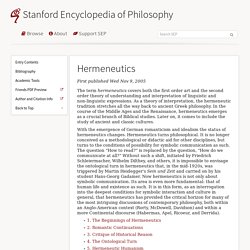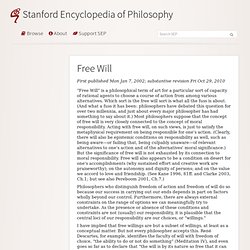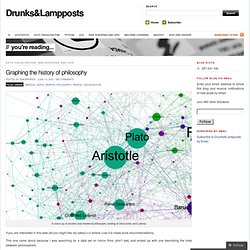

Philosophy. Philosophy of mind. Logic, Reasoning, Argumentation. History/Myths/Religion. Does God Exist? Problems of Belief & Unbelief William Lane Craig says there are good reasons for thinking that He does. On April 8, 1966, Time magazine carried a lead story for which the cover was completely black except for three words emblazoned in bright, red letters against the dark background: “IS GOD DEAD?” The story described the so-called ‘Death of God’ movement then current in American theology. But, to paraphrase Mark Twain, it seemed that the news of God’s demise was “greatly exaggerated.” For at the same time that theologians were writing God’s obituary, a new generation of young philosophers was re-discovering His vitality. Back in the 1940s and ’50s it was widely believed among philosophers that any talk about God is meaningless, since it is not verifiable by the five senses.
But what about the so-called ‘New Atheism’ exemplified by Richard Dawkins, Sam Harris, and Christopher Hitchens? Eight Reasons in Support of God’s Existence (I) God is the best explanation why anything at all exists. 1. Hermeneutics. 1.

The Beginnings of Hermeneutics The term hermeneutics, a Latinized version of the Greek hermeneutice, has been part of common language from the beginning of the 17th century. Nevertheless, its history stretches back to ancient philosophy. Addressing the understanding of religious intuitions, Plato used this term in a number of dialogues, contrasting hermeneutic knowledge to that of sophia.
Religious knowledge is a knowledge of what has been revealed or said and does not, like sophia, involve knowledge of the truth-value of the utterance. The Stoics, however, never developed a systematic theory of interpretation. With Augustine we encounter a thinker whose influence on modern hermeneutics has been profoundly acknowledged by Dilthey, Heidegger, and Gadamer.
In spite of these and similar points of dialogue, it is in the wake of Martin Luther's sola scriptura that we see the dawn of a genuinely modern hermeneutics. Like Ast, Wolf was trained in Classical studies. 2. 3. 4. Free Will. 1.

Rational Deliberation 1.1 Free Will as Choosing on the Basis of One's Desires On a minimalist account, free will is the ability to select a course of action as a means of fulfilling some desire. David Hume, for example, defines liberty as “a power of acting or of not acting, according to the determination of the will.” (1748, sect.viii, part 1). And we find in Jonathan Edwards (1754) a similar account of free willings as those which proceed from one's own desires. One reason to deem this insufficient is that it is consistent with the goal-directed behavior of some animals whom we do not suppose to be morally responsible agents. 1.2 Free Will as deliberative choosing on the basis of desires and values A natural suggestion, then, is to modify the minimalist thesis by taking account of (what may be) distinctively human capacities and self-conception.
Hermeneutics.
'Ik ben een burger van de wereld' (Erasmus) Graphing the history of philosophy. A close up of ancient and medieval philosophy ending at Descartes and Leibniz If you are interested in this data set you might like my latest post where I use it to make book recommendations.

This one came about because I was searching for a data set on horror films (don’t ask) and ended up with one describing the links between philosophers. To cut a long story very short I’ve extracted the information in the influenced by section for every philosopher on Wikipedia and used it to construct a network which I’ve then visualised using gephi It’s an easy process to repeat. It could be done for any area within Wikipedia where the information forms a network. First I’ll show why I think it’s worked as a visualisation. Each philosopher is a node in the network and the lines between them (or edges in the terminology of graph theory) represents lines of influence. It gets more interesting when we use Gephi to identify communities (or modules) within the network.
It has been fairly successful. Simon. Portal:Philosophy/Lists. Welkom // filosofie.be. Filosofie in Nederland en Vlaanderen van de Oudheid tot de 21ste eeuw. Western Philosophy. Filosofie wiki. In het dagelijks spraakgebruik wordt de term filosofie gebruikt om elke vorm van wijsheid of levensbeschouwing aan te duiden (zoals in "iemands filosofie") of iemands uitgangspunten (zoals in "het sluit niet aan op de filosofie achter dit plan").

Dit verschilt van het begrip filosofie in een academische context, zoals deze in dit artikel gehanteerd wordt. Oorsprong van het begrip filosofie[bewerken] De introductie van de term "filosofie" werd toegeschreven aan de Griekse denker Pythagoras: "De vita et moribus philosophorum", I, 12; Cicero: "Tusculanae disputationes", V, 8-9). Deze verwijzing is waarschijnlijk gebaseerd op een verloren gegaan werk van Herakleides Pontikos, een leerling van Aristoteles.
Het wordt beschouwd als deel van de wijdverspreide pythagorische legenden uit die tijd. Filosofie en 'filosoferen' was volgens Aristoteles de meest verheven en meest goddelijke activiteit voor de mens, die ze van nature voltooit en die een bron van vreugde is. Stromingen[bewerken] Philosophy.